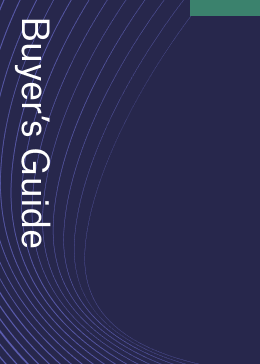MDMA therapy wait goes on as FDA panel rejects Lykos’ PTSD treatment
05 Jun 2024
Phase 3Clinical Result

Preview
Source: Pharmaceutical Technology
This is the first time FDA advisers have formally discussed a psychedelic drug for medical use. Image credit: Shutterstock / BLACKDAY.
A US Food and Drug Administration (FDA) panel has voted to decline approval of Lykos Therapeutics’s midomafetamine (MDMA) treatment for post-traumatic stress disorder (PTSD), prolonging the wait for the first approved therapy based on the psychoactive drug.
Recommended Buyer's Guides

Preview
Source: Pharmaceutical Technology
Buyer's Guide
Leading Guide to Compliance Software for the Pharmaceutical Industry

Preview
Source: Pharmaceutical Technology
Buyer's Guide
Leading Guide to Clinical Packaging Companies in contract Manufacturing for the Pharmaceutical Industry
US-based Lykos’ application was for MDMA-assisted therapy, consisting of MDMA capsules in combination with psychological intervention.
The FDA’s Psychopharmacologic Drugs Advisory Committee was not convinced by Lykos’ Phase III trials, with nine out of the 11 experts agreeing in the first vote that the available data did not show midomafetamine is effective in patients with PTSD. In a second vote, ten out of 11 members said that the benefits of the drug do not outweigh its risks.
This is the first time FDA advisers have formally discussed a psychedelic drug for medical use. MDMA is classed as an empathogen–entactogen, having both a stimulatory and a hallucinogenic effect. It produces distortions in time and perception, enhanced sensory experiences, and an energising feeling.
The final decision on whether the Lykos’ candidate is approved now rests with the FDA, and whilst the advisory committee’s meeting decision is not binding, it usually acts as a reliable indicator of how the agency will review a submission. The FDA’s approval decision is expected by the Prescription Drug User Fee Act (PDUFA) target action date of 11 August.
See Also:Ukraine: a market access review over two years of war

Preview
Source: Pharmaceutical Technology
BIOSECURE Act could impact US biopharma drugs with half in clinical-stage development

Preview
Source: Pharmaceutical Technology
Emerson added: “We remain committed to working with the FDA to address outstanding questions so that we may find a path forward to ensure the responsible and careful introduction of MDMA-assisted therapy into the healthcare system if approved.”
Lykos presented positive data from two Phase III trials at the meeting. The MAPP1 (NCT03537014) and MAPP2 (NCT04077437) studies, which enrolled around 200 people with PTSD, both met their primary and secondary endpoints of PTSD symptom improvement and disability score assessments. MDMA was given in three eight-hour therapy sessions, four weeks apart, and compared against a placebo group.
Whilst the agency noted the patient improvements, questions around trial design remained. The trials were both double-blinded – the gold standard in a placebo-controlled study – but due to the profound feelings and sensations produced by MDMA, patients knew which cohort they were in.
PTSD affects around 5% of adults in the US every year, amounting to approximately 13 million people, according to the National Center for PTSD. Current treatments, which include antidepressants and cognitive behavioural therapy, are not always successful and few options exist beyond these for patients.
The interest in psychedelic drugs has grown substantially recently. GlobalData reported a 500% increase in total deal volume for psychedelic partnerships in the pharma industry from 2019 to 2023. The most recent company to join the arena was AbbVie, partnering with psychedelic specialist Gilgamesh in a deal worth a potential $1.95bn. The two companies will pursue neuroplastogens – agents that induce rapid and long-lasting neuroplasticity while minimising the side effects seen with existing psychedelic compounds.
For more details,please visit the original website
The content of the article does not represent any opinions of Synapse and its affiliated companies. If there is any copyright infringement or error, please contact us, and we will deal with it within 24 hours.
Organizations
Indications
Targets
-Chat with Hiro
Hot reports
Get started for free today!
Accelerate Strategic R&D decision making with Synapse, PatSnap’s AI-powered Connected Innovation Intelligence Platform Built for Life Sciences Professionals.
Start your data trial now!
Synapse data is also accessible to external entities via APIs or data packages. Empower better decisions with the latest in pharmaceutical intelligence.




